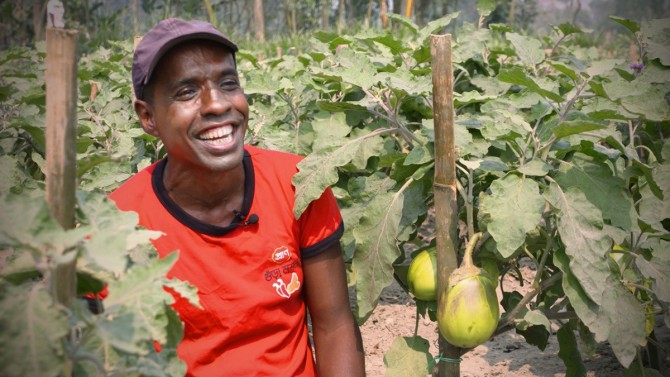Gates grant seeds Cornell Alliance for Science $10M campaign
By Joan Conrow
The Cornell Alliance for Science is launching a “$10M by 2020” campaign, seeded with a $6.4 million grant from the Bill & Melinda Gates Foundation. Funds raised during the campaign will support the Alliance’s global efforts to ensure broad access to agricultural innovation, especially among small-holder farmers in developing nations.
“Many of the most promising innovations have been developed in the public sector with a mission to improve the livelihoods of small-holder farmers,” said Sarah Evanega, director of the Cornell Alliance for Science. “All farmers should be able to choose whether to adopt these improved seeds and crops.”
The Alliance was founded in 2014 with a $5.6 million grant from the Gates Foundation. It has grown into a progressive international network that has trained nearly 400 science advocates representing 35 nations. They work in their home countries to communicate effectively about science and champion evidence-based agricultural policies.
“The situation is increasingly urgent, with many countries at critical junctures in determining whether plant science can help deliver food security and reduce the environmental damage caused by agriculture,” Evanega said. “We must be sure that science-based solutions don’t bypass the poor.”
The Alliance trains grassroots organizers through a series of short courses taught in partner countries, along with a 12-week Global Leadership Fellows program on campus.
The Alliance also produces and disseminates multimedia that tell the stories of scientists and farmers engaged in agricultural innovation initiatives around the world. It partners with many organizations and institutions and has built a network of more than 9,000 science allies representing more than half the world’s countries and every U.S. state.
“In the history of the world, nobody has ever made it without innovation,” said Daniel Otunge, project manager of the Open Forum on Agricultural Biotechnology. “As a Kenyan, I appreciate that the Alliance for Science wants Africans to decide what innovations we will use. Africa is the most food-insecure continent in the world, the worst-hit by climate change. If technology is out there to help Africa feed itself, to help families survive, why not go for it?”
Said Evanega: “In the past six months, we have seen renewed commitment to evidence-based approaches from people all over the world through movements like the March for Science. In the next three years, we will be actively seeking fellows and supporters who want to join the Alliance, tell their stories and help us drive this climate for change.”
Joan Conrow is managing editor for Cornell Alliance for Science.
Media Contact
Get Cornell news delivered right to your inbox.
Subscribe